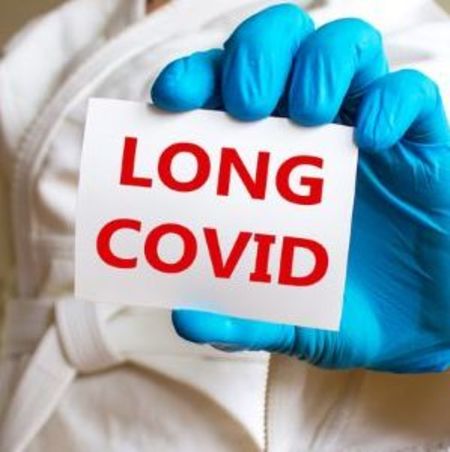Many individuals with COVID-19 report symptoms lasting for over four weeks, but for some, these symptoms persist past 12 weeks. Some described extreme fatigue, shortness of breath, cognitive dysfunction, i.e. ‘brain fog’, or a persistent loss of taste or smell.
The prevalence of this symptom cluster, colloquially known as ‘Long-COVID’, has been reported to range from 7% to 30% of those contracting COVID-19. In many cases, COVID-19 slowly exacerbates other diseases causing hidden damage that is not seen until much later. It can include cardiac arrest, stroke, heart failure, pulmonary embolism, myocarditis and chronic kidney disease. Many of the symptoms overlap with chronic fatigue syndrome / myalgic encephalomyelitis, which also presents with severe fatigue, memory and cognitive problems, and often muscle or joint pain. Notably, there’s a ‘post-exertional malaise’ following physical activity, making Long-COVID a condition that affects people’s functionality.
Given a broad range of symptoms, diagnostic uncertainties, and possible effects, many Long-COVID sufferers have described ‘medical gaslighting’ by health practitioners. Unfortunately, when confronted with a new cluster of symptoms, many physicians have assumed a psychiatric cause or assured the patient that nothing is wrong. Historically, many conditions with diagnostic uncertainties like myalgic encephalomyelitis/chronic fatigue syndrome receive medical scepticism regarding whether the condition exists and if there’s an underlying organic cause. Many clinicians are reluctant to diagnose Long-COVID because of scepticism surrounding the illness. This can have the effect of medical gaslighting and marginalising the disease.
Although this suggests prevalent overreliance on diagnostic tests within medical practice, a failure to diagnose the disease is a serious issue. In the short term, medical gaslighting highlights the need for clear diagnostic criteria on which medical practitioners can rely. As time passes, more information is collected, and a better understanding of the disease arises. Thus, diagnostic criteria will become clearer. Easy diagnostic tests, like a predictive blood test, can also facilitate diagnoses.
With this aim, one Swiss research group recently discovered an immunoglobulin (Ig) signature that can predict the risk of Long-COVID. Total IgM and IgG3 levels, along with age, history of asthma bronchiale, and five specific symptoms during the initial COVID infection, were found to predict the likelihood of developing Long-COVID. The signature was discovered in a study cohort of 215 patients and subsequently validated in another 395 individuals, based on their condition during the primary infection and that one year later. Reported accuracies (AUC) were 99% among hospitalised patients and 64% among the entire study cohort. The study authors envisioned that the test would direct the prescribing of preventive measures against developing Long-COVID if there are high risks.
Sources: Bloomberg, BMJ, Nature, The Guardian, The New York Times



























